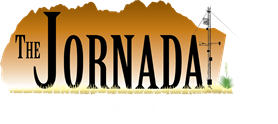| Title | Collaborative animal science research: impacts of agriculture and trade policies on cross-border rangeland research and management |
| Publication Type | Conference Paper |
| Year of Publication | 2005 |
| Authors | Fredrickson E.L., Bezanilla G. |
| Conference Name | Society for Range Management, 58th Annual Meeting and Trade Show |
| Date Published | February 5, 2005 |
| Conference Location | Fort Worth, TX |
| ARIS Log Number | 178264 |
| Keywords | agriculture and trade policies, animal science research, cross-border, management, rangeland, research |
| Abstract | In sharing a common boundary, Mexico and the United States also shares common landscapes and an agricultural economy that is inextricably linked. Due to the high degree of connectedness between these countries, factors that affect one country also affect the other, either directly or indirectly. Current problems in the border region include extended drought, land degradation, and depletion of essential resources such as water. These problems are exacerbated by ensconced political and social systems resistant to change. The implications of these events are profound, and often referred to as being near catastrophic. Collaborative research between Mexican and US researchers offers numerous benefits by combining human and material resources to solve common problems. Despite these benefits, language, social customs, and political policies can create barriers to collaborative efforts that reduce the effectiveness and the overall number of collaborative efforts. When anticipated and appropriately planned for, these barriers can effectively be dealt with. We discuss these potential barriers and how to address them by relating our experiences with collaborative Mexican-US projects on the conservation and use of northern Mexican criollo beef cattle breeds in semiarid and arid environments. |


